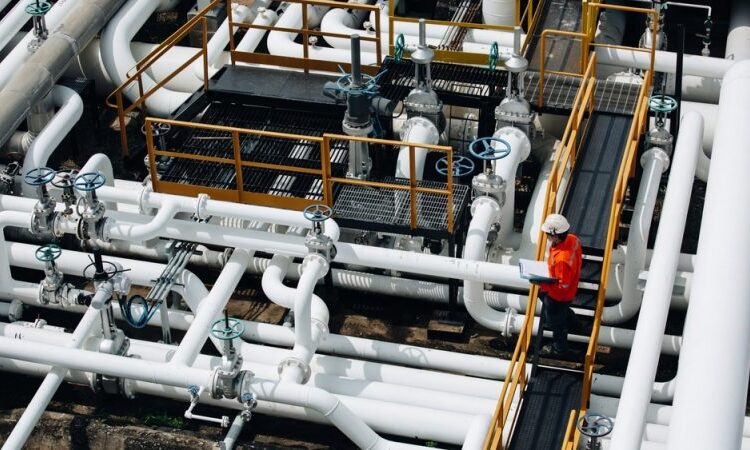EU Commission reconfirms possible funding for Maltese gas pipeline linked to murder – EURACTIV.com

Malta’s TransGas pipeline project has been re-added to the European Commission’s sixth ‘Projects of Common Interest’ (PCI) list, meaning it will be eligible for EU funding despite years of protests about the pipeline’s viability, environmental impact, and links to corruption and murder, a leaked document reveals.
The pipeline would link Malta to Sicily and replace the current LNG tanker anchored off the coast of Delimara. At an estimated cost of €400 million, the Maltese government has asked the Commission to contribute.
From day one, the project has been mired in controversy due to the pipeline linking to the Delimara Power Plant, operated by Electrogas.
Yorgen Fenech, the man imprisoned pending trial for involvement in the assassination of Daphne Caruana Galizia, remains on of Electrogas’ ultimate beneficial owners, and others involved are subject to ongoing investigations for money laundering and corruption.
Although the EU’s Trans-European Networks for Energy (TEN-E) rules emphasise renewable energies and electricity interconnections, Malta obtained a derogation, and the project was included on the fifth EU PCI list in 2022, making it eligible for EU funds.
Frida Kieninger, director of EU affairs at Food & Water Action Europe, told Euractiv that this derogation grants top EU priority status for fossil fuel projects and “ridicules the aim of the recently renewed rulebook (TEN-E regulation) based on which Union List projects are selected, namely to exclude classic fossil gas projects.”
The family of Caruana Galizia and various MEPs and environmental NGOs sounded the alarm over the project and called for it not to be included on the sixth list. However, according to a copy of the list seen by Euractiv, the pipeline project has again been included.
Under a heading stating “Projects that maintain their status of project of common interest (Article 24 derogation)”, the pipeline is listed along with one in Cyprus.
“All member states should be serious about the urgency for a just transition, and the least our pockets – and global climate – needs is another brand new fossil fuel infrastructure project,” Kieninger added.
Food & Water Action Europe have been straightforward that the rest of the projects on the list, 68 in total, were proposed by giants of the fossil fuel industry, such as RWE, Shell and BP. They say that the promise of climate-friendly hydrogen has turned into a “multi-billion jackpot for the fossil gas industry”, and only a handful are credibly green hydrogen projects, Malta not included.
The Maltese government has argued that the pipeline would be used for environmentally friendly hydrogen power in the future, but this is not commercially used or available at present, and there is no certainty over whether and how it can be used. Despite this, in the recently announced budget, the government earmarked funding to formulate a strategy to introduce the use of hydrogen locally.
Aside from concerns over its viability regarding the green transition and Europe’s commitment to moving away from fossil fuel energy, the project has received significant criticism due to Fenech’s involvement.
Months after Malta’s Labour party came to power in 2013, a major public contract was awarded to a consortium of companies, including Fenech’s and the Azerbaijani State energy company SOCAR. A similar project was pushed by Fenech in 2007 but failed to get off the ground, the Daphne Caruana Galizia Foundation said.
The new deal, described as “sinister” by Council of Europe rapporteur Pieter Omtzigt, was struck with the help of ex-minister Konrad Mizzi, ex-chief of staff Keith Schembri, and disgraced former prime minister Joseph Muscat.
Journalists then discovered that the Maltese state energy company, Enemalta, would pay twice the market rate for natural gas through the deal, giving SOCAR at least $40 million in profit. It was also revealed that via a company called 17 Black, Fenech was set to make payments of €150,000 a month to offshore companies owned by Mizzi and Schembri.
Furthermore, under the contract terms, the Maltese people must buy from Electrogas despite the gas being supplied by someone else. This means they will have to compensate Electrogas and, by default, Fenech, who remains a shareholder, by up to €85 million.
Caruana Galizia was investigating the Electrogas deal and Fenech’s involvement at the time she was assassinated.
(Alice Taylor | Euractiv.com)







